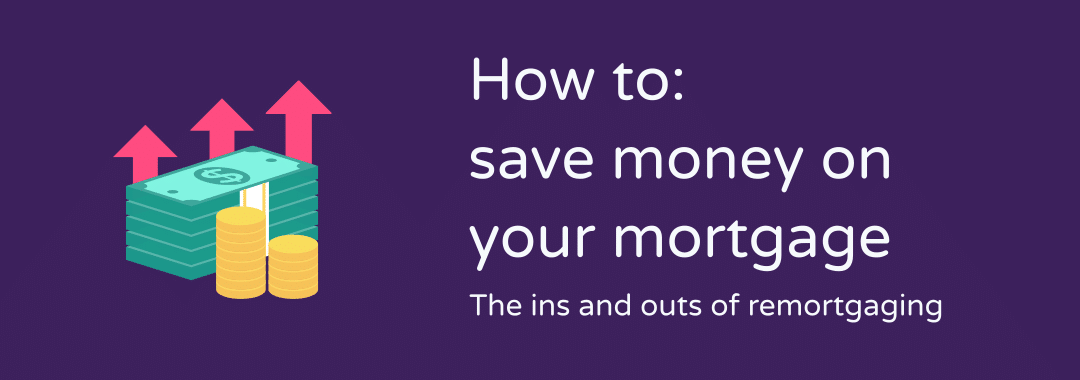Your Remortgage Questions Answered
• Should I remortgage?
• How do I remortgage?
• How long does the remortgage process take?
•What do I need for a remortgage?
It was said by someone far wiser than I, that in life the two most important things we spend are time and money.
Smart people always make money, so it’s only time you really need to think about, we only have so much and the clock is ticking.
Mortgages have a lot in common with this philosophy, because your mortgage has a term which will one day expire and it costs money which must be earned and paid each month.
When it comes to your mortgage, time and money are both things we can influence and control, which is one of the reasons you should always use a Mortgage Advisor to review the cost and terms of your mortgage, to see if you could cut the monthly costs and/or repay the mortgage in full in a shorter timescale, this ensures you are always getting the best mortgage deal available for you and also that you don’t start paying the lenders (normally more expensive) standard variable rates.
People who don’t review their mortgages generally end up paying more, because with most mortgages, the lender switches the borrower to the standard variable rate after a fixed period of time, which is normally a higher interest rate and so those people end up spending money each month that they could be keeping for themselves.
At the time of writing, the biggest mortgage saving we have seen so far this year was over £630 per month, this particular client began the conversation with us by saying they thought they had a really good deal and didn’t think we would be able to help them.
A saving of £630 every month is £7,560 a year; think about what you could do with that in your pocket.
The other thing you could do whilst remortgaging is to shorten the term of your mortgage, so you become mortgage free sooner, reducing the amount of interest you’ll pay over the term of your mortgage.
In some scenarios even a combination of the two may be possible, cutting your monthly payment whilst also shortening the term, which we have seen in a number of cases.
Another group who really need regular contact with a Mortgage Advisor are borrowers who have an interest only mortgage, if you're in this group, get in touch with an expert Mortgage Advisor as soon as possible to identify a plan to repay your interest only borrowing, and avoid undue stress later down the line.
The purpose of this blog is to help you understand why regularly reviewing your mortgage is so important, advantageous and sensible, and also to help you prepare for the remortgage process and ultimately to save you time and money on your mortgage.
So let’s talk about the remortgage process itself, what it involves, what you need to do and just how long the process will take.
Reviewing your current situation and clarifying your goals
What do you currently owe on your mortgage?
What do you want to get out of the remortgage process?
Your mortgage lender will provide you with a mortgage statement each year, if you can’t find the statement, find the number for the lender and ask for an up to date balance.
Find out what your interest rate is and what your monthly payment is, check if there are any costs to leaving your current deal - but don’t let these put you off, they will need to be considered and factored in when searching for a new mortgage product.
Do you have any other debts?
Make a list of these and consider whether you want these to be paid off with the balance being added to your new mortgage.
If they are credit card debts or personal loans, remember that by putting them on a mortgage you may get a lower interest rate but you will also be paying interest for a longer term, and you are moving them from an unsecured debt to one which is secured against your home, so think about this very carefully and discuss it with your Mortgage Advisor to determine the best option.
Remember, you can check your credit file containing all of your debts and credit history information for free at sites like Noddle, Clear Score or Experian.
Do you need to raise funds on your mortgage for something else?
Whether it’s for home improvements or a deposit for another property, say for a son or daughter?
Make a note of your goals and discuss with your adviser what is achievable and what the best option for you is.
Consider whether there you are expecting any changes in your situation in the near future and how that might affect your ability to obtain and repay your mortgage.
What documents will I need to support the remortgage process?
The list of documents you will need to provide will vary depending on who your mortgage is with, but a standard list might look something like this:
• Proof of identity
• Proof of current address. (A 3 year address history is normally asked for)
• 3 months worth of bank statements from the account where you pay your household bills and receive your income.
• A P60 if you are employed or have pension income.
• Accounts if you are self employed or a contractor. If you are working under the CIS scheme then the CIS payslips will help.
• SA302 and tax summary available from HMRC on-line for self employed people.
• Your credit file if you have any doubt about your credit rating. You can get your credit score for free from Noddle, Clear score or Experian)
• Your mortgage statement if you have it.
Get expert advice on all aspects of your remortgage
Using an impartial, whole of market Mortgage Advisor is crucial to getting the best deal on your remortgage, we can look at every aspect of your situation, advise you on the best course of action and guide you through the entire remortgage process.
Not only that, but when you become our client, we will constantly review your mortgage for you, making sure you’re on the very best deal when it comes time to review your mortgage product.
Because we know how busy life is, we are set up to undertake our work online, over the phone, through Skype, at your home or at our office; we will work around you to make it as easy as possible for you to save money on your mortgage.
Applying for your remortgage
Once you are happy to proceed, we will begin the remortgage application process; this is broken down into two stages, the first is an agreement in principle, the second is the full mortgage application. We complete a fully packaged application on your behalf based on our knowledge of the chosen lender’s requirements, once they have made a decision they will instruct a valuation of your home and underwrite the case.
Once the lender is happy they will issue a mortgage offer and the mortgage is then completed, either by a product transfer if you are staying with your existing lender or by a solicitor if you are switching providers, we will help you to make the change at the right time, avoiding unnecessary charges.
Do I have to pay for a remortgage?
Many remortgage packages have a low or no fees. Free valuations and free solicitors may also be offered; with the lender paying these fees for you, some even come with cash back incentives to sweeten the deal.
How long does the remortgage process take?
Well this week we had a case which was started at 11:07am and the offer was issued at 13:54pm the same day, the net saving on this remortgage was £80 per month on the existing mortgage and £210 on the cost of the standard variable rate which the lender would have moved the customer on to at the end of the month.
Of course this isn’t always the case but typically the remortgage process takes a couple of weeks to arrive at offer stage.
Even if you don’t think you can get a mortgage, it is worth checking with us. We don’t charge you for checking and you could end up of saving a lot of money on your mortgage.

